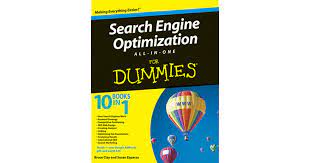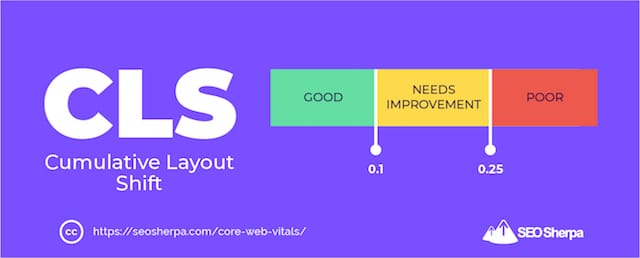Search Engine Optimization for Dummies
Welcome to the world of Search Engine Optimization (SEO)! If you’re new to SEO and feeling a bit overwhelmed by all the technical jargon, don’t worry – we’ve got you covered. In this article, we’ll break down the basics of SEO in simple terms that even beginners can understand.
What is SEO?
SEO is the practice of optimizing your website to improve its visibility on search engines like Google. The goal of SEO is to increase organic (non-paid) traffic to your site by ranking higher in search engine results pages (SERPs).
Key Elements of SEO
There are several key elements to consider when optimizing your website for search engines:
- Keywords: Keywords are the words and phrases that people type into search engines. By incorporating relevant keywords into your website content, you can improve your chances of ranking higher in search results.
- Meta Tags: Meta tags provide information about a web page to search engines. Make sure to include relevant meta titles and descriptions that accurately describe your content.
- Quality Content: Creating high-quality, valuable content that is relevant to your target audience is essential for SEO success.
- Link Building: Building quality backlinks from reputable websites can improve your site’s authority and credibility in the eyes of search engines.
- User Experience: Providing a seamless user experience on your website, including fast loading times and easy navigation, can positively impact your SEO efforts.
Tips for Beginners
If you’re new to SEO, here are some tips to get you started:
- Research Keywords: Use keyword research tools to identify relevant keywords for your industry.
- Create Quality Content: Focus on creating valuable content that addresses the needs and interests of your target audience.
- Optimize Your Website: Ensure that your website is optimized for both users and search engines by following best practices for on-page optimization.
- Monitor Your Progress: Use analytics tools to track your website’s performance and make adjustments as needed based on data insights.
Remember, SEO is an ongoing process that requires time and effort. By implementing these basic strategies and staying informed about industry trends, you can improve your website’s visibility and attract more organic traffic over time. Good luck!
8 Essential SEO Tips for Beginners: Boost Your Website’s Visibility
- Choose relevant keywords for your content
- Optimize your website’s meta tags and descriptions
- Create high-quality, engaging content regularly
- Improve your website’s loading speed for better user experience
- Utilize internal linking to improve site navigation
- Optimize images with descriptive filenames and alt text
- Make sure your website is mobile-friendly and responsive
- Monitor and analyze your SEO efforts using tools like Google Analytics
Choose relevant keywords for your content
Selecting appropriate keywords for your content is a crucial aspect of search engine optimization. By choosing relevant keywords that accurately reflect the topic and intent of your content, you increase the likelihood of your website appearing in search engine results when users search for those specific terms. Conducting thorough keyword research and strategically incorporating these keywords into your content can significantly improve your website’s visibility and attract the right audience to your site.
Optimize your website’s meta tags and descriptions
Optimizing your website’s meta tags and descriptions is a crucial aspect of Search Engine Optimization (SEO) for beginners. Meta tags provide valuable information to search engines about the content of your web pages, while meta descriptions offer a concise summary that appears in search results. By crafting relevant and compelling meta tags and descriptions that include targeted keywords, you can improve your site’s visibility and attract more organic traffic. Ensuring that these elements accurately reflect the content of your pages can enhance your website’s chances of ranking higher in search engine results pages (SERPs) and ultimately drive more visitors to your site.
Create high-quality, engaging content regularly
Creating high-quality, engaging content regularly is a crucial tip for beginners diving into the world of Search Engine Optimization (SEO). By consistently producing valuable content that resonates with your target audience, you not only enhance user experience on your website but also increase the likelihood of attracting organic traffic. Search engines prioritize websites that offer fresh and relevant content, making regular content creation a key strategy for improving your site’s visibility and ranking in search results. Remember, quality over quantity is essential when it comes to content creation – focus on delivering informative and engaging material that adds value to your audience’s online experience.
Improve your website’s loading speed for better user experience
Improving your website’s loading speed is a crucial tip for Search Engine Optimization beginners. A faster loading speed not only enhances the user experience by reducing wait times and increasing engagement but also positively impacts your site’s SEO performance. Search engines like Google prioritize websites that load quickly, as it contributes to a better overall user experience. By optimizing your website’s loading speed, you can not only attract and retain more visitors but also improve your search engine rankings, making it easier for users to find your site online.
Utilize internal linking to improve site navigation
Internal linking is a valuable strategy in Search Engine Optimization for beginners, as it helps improve site navigation and enhances the user experience. By strategically linking relevant pages within your website, you not only make it easier for visitors to explore different sections of your site but also help search engines understand the structure and hierarchy of your content. This can ultimately lead to improved indexing and ranking of your web pages, making internal linking a simple yet effective way to boost your SEO efforts.
Optimize images with descriptive filenames and alt text
When optimizing images for better search engine visibility, it is crucial to use descriptive filenames and alt text. By naming your image files with relevant keywords that describe the content of the image, you can improve their chances of appearing in search results. Additionally, providing alt text that accurately describes the image not only helps visually impaired users understand the content but also provides search engines with valuable information about the image. This simple yet effective practice can enhance your website’s SEO efforts and improve user experience simultaneously.
Make sure your website is mobile-friendly and responsive
Ensuring that your website is mobile-friendly and responsive is a crucial tip for effective Search Engine Optimization (SEO) for beginners. With the increasing use of mobile devices to access the internet, having a website that adapts seamlessly to different screen sizes and devices is essential. A mobile-friendly and responsive website not only enhances the user experience but also signals to search engines like Google that your site is modern and user-friendly, potentially boosting your search engine rankings. By prioritizing mobile optimization, you can reach a wider audience and improve your website’s overall performance in search results.
Monitor and analyze your SEO efforts using tools like Google Analytics
To ensure the effectiveness of your SEO strategies, it is crucial to monitor and analyze your efforts using tools like Google Analytics. By tracking key metrics such as website traffic, user behavior, and keyword performance, you can gain valuable insights into what is working well and where there is room for improvement. Analyzing this data allows you to make informed decisions to optimize your website further and enhance its visibility on search engines. Regularly monitoring your SEO efforts with tools like Google Analytics is essential for achieving long-term success in improving your website’s search engine rankings.




